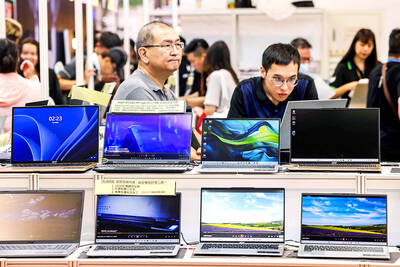The IBM “endorsement effect” has often shaped the computer industry over the years. In 1981, when IBM entered the personal computer business, the company decisively pushed an upstart technology into the mainstream.
In 2000, the open-source operating system Linux was viewed askance in many corporations as an oddball creation and even legally risky to use, since the open-source ethos prefers sharing ideas rather than owning them, but IBM endorsed Linux and poured money and people into accelerating the adoption of the open-source operating system.
APACHE SPARK
IBM was yesterday scheduled to announce a broadly similar move in big data software. The company is placing a large investment — contributing software developers, technology and education programs — behind an open-source project for real-time data analysis, called Apache Spark.
The commitment, according to Robert Picciano, senior vice president for IBM’s data analytics business, will amount to “hundreds of millions of dollars” a year.
In the big data software market, much of the attention and investment so far has been focused on Apache Hadoop and the companies distributing that open-source software, including Cloudera, Hortonworks and MapR.
Hadoop, put simply, is the software that makes it possible to handle and analyze vast volumes of all kinds of data. The technology came out of the pure Internet companies like Google and Yahoo, and is increasingly being used by mainstream companies, which want to do similar big data analysis in their businesses.
SPEED
However, if Hadoop opens the door to probing vast volumes of data, Spark promises speed. Real-time processing is essential for many applications, from analyzing sensor data streaming from machines to sales transactions on online marketplaces.
The Spark technology was developed at the Algorithms, Machines and People Lab at the University of California, Berkeley. A group from the Berkeley lab founded a company two years ago, Databricks, which offers Spark software as a cloud service.
Spark, Picciano said, is crucial technology that will make it possible to “really deliver on the promise of big data.”
That promise, he said, is to quickly gain insights from data to save time and costs, and to spot opportunities in fields like sales and new product development.
IBM said it will put more than 3,500 of its developers and researchers to work on Spark-related projects. It will contribute machine-learning technology to the open-source project, and embed Spark in IBM’s data analysis and commerce software. IBM will also offer Spark as a service on its programming platform for cloud software development, Bluemix. The company will open a Spark technology center in San Francisco to pursue Spark-based innovations.
PARTNERSHIPS
IBM also plans to partner with academic and private education organizations, including UC Berkeley’s AMPLab, DataCamp, Galvanize and Big Data University to teach Spark to as many as 1 million data engineers and data scientists.
By aligning itself with a popular open-source project, IBM, they said, hopes to attract more software engineers to use its big data software tools, too.
“It’s first and foremost a play for the minds — and hearts — of developers,” IDC analyst Dan Vesset said.

TECH TITAN: Pandemic-era demand for semiconductors turbocharged the nation’s GDP per capita to surpass South Korea’s, but it still remains half that of Singapore Taiwan is set to surpass South Korea this year in terms of wealth for the first time in more than two decades, marking a shift in Asia’s economic ranks made possible by the ascent of Taiwan Semiconductor Manufacturing Co (TSMC, 台積電). According to the latest forecasts released on Thursday by the central bank, Taiwan’s GDP is expected to expand 4.55 percent this year, a further upward revision from the 4.45 percent estimate made by the statistics bureau last month. The growth trajectory puts Taiwan on track to exceed South Korea’s GDP per capita — a key measure of living standards — a

READY TO HELP: Should TSMC require assistance, the government would fully cooperate in helping to speed up the establishment of the Chiayi plant, an official said Taiwan Semiconductor Manufacturing Co (TSMC, 台積電) yesterday said its investment plans in Taiwan are “unchanged” amid speculation that the chipmaker might have suspended construction work on its second chip packaging plant in Chiayi County and plans to move equipment arranged for the plant to the US. The Chinese-language Economic Daily News reported earlier yesterday that TSMC had halted the construction of the chip packaging plant, which was scheduled to be completed next year and begin mass production in 2028. TSMC did not directly address whether construction of the plant had halted, but said its investment plans in Taiwan remain “unchanged.” The chipmaker started

MORTGAGE WORRIES: About 34% of respondents to a survey said they would approach multiple lenders to pay for a home, while 29.2% said they would ask family for help New housing projects in Taiwan’s six special municipalities, as well as Hsinchu city and county, are projected to total NT$710.65 billion (US$23.61 billion) in the upcoming fall sales season, a record 30 percent decrease from a year earlier, as tighter mortgage rules prompt developers to pull back, property listing platform 591.com (591新建案) said yesterday. The number of projects has also fallen to 312, a more than 20 percent decrease year-on-year, underscoring weakening sentiment and momentum amid lingering policy and financing headwinds. New Taipei City and Taoyuan bucked the downturn in project value, while Taipei, Hsinchu city and county, Taichung, Tainan and Kaohsiung

Micro-Star International Co (MSI, 微星科技) is expanding notebook computer production in India after partnering with Indian electronics maker Syrma SGS Technology Ltd late last year, as the Taiwanese company seeks to tap into the local market. MSI also plans to manufacture some of its new gaming PCs powered by Nvidia Corp’s RTX 50 graphics cards in India, while adding more advanced and design-focused PCs and notebooks at Syrma’s plant in Chennai, a source told the Taipei Times yesterday on condition of anonymity. MSI’s deployment in India is driven not only by cost advantages, but also by India’s rapidly expanding consumer market and